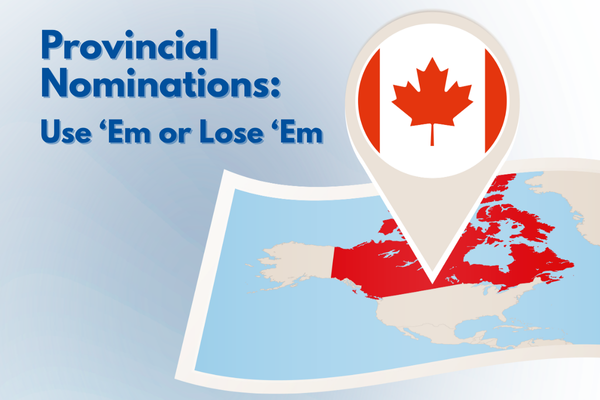Canada has good chances for people who want to start businesses or have special skills. The government has a program called the Start-Up Visa, which began in 2013. It's a good choice if you want to help Canada grow and make a good impact. In this blog, we'll talk about this program and how it can help people from all around the world become permanent residents in Canada.
Please note: Immigration regulations are subject to change, and we cannot guarantee that this information is up-to-date. For up-to-date information, please visit the Government of Canada's website or speak with a Regulated Canadian Immigration Consultant.
1. Advantages of the Start-Up Visa Program
a. Pathway to Permanent Residency: Once approved, successful applicants and their immediate family members become eligible for Permanent Residency in Canada.
b. Access to Canada's Business Ecosystem: Start-Up Visa holders can tap into Canada's active business world. This means they can get help from experienced people, make business connections, and find resources to help their businesses grow.
c. Canadian Citizenship Eligibility: After you've been a permanent resident in Canada for some time and follow the rules, you can ask to become a Canadian citizen. This opens up more opportunities and benefits for you.
2. Understanding the Start-Up Visa Program
The Start-Up Visa program wants to bring creative entrepreneurs to Canada who can start and grow their businesses here. Unlike some other visas you need to invest a lot of money, this program checks if your business idea is good. To be eligible, you must get a letter of support from a specific Canadian group, such as an angel investor group, a venture capital fund, or a business incubator. This endorsement serves as a critical factor in the application process.
3. Qualifying Factors
To be eligible for the Start-Up Visa program, applicants must meet certain criteria:
- Have a qualifying business that is innovative, viable, and has the potential for significant growth.
- Obtain a letter of support from a designated organization confirming the commitment to support the applicant's business.
- Meet the language requirements in English or French, as per the Canadian Language Benchmark (CLB) level 5.
- Have sufficient settlement funds to support themselves and their family members in Canada.
4. The Application Process
Online Application and Biometrics: Since October 14, 2022, applying online has become mandatory for the Start-Up Visa program. Most applicants now need to provide biometrics (fingerprints and photo) after submitting their application, a crucial step for identity verification.
Eligibility and Forms: Applicants must meet specific criteria, including having a qualifying business idea and securing support from a designated Canadian organization. The application involves filling out digital and PDF forms.
Use of a Representative: Applicants can seek assistance from an immigration representative, but they must register online their name as a legal rule.
Photo Specifications: Each applicant requires a photo, and the online application provides scanning instructions.
Paying Application Fees: To process the application, you'll need to pay different fees, including biometrics fees.
Temporary Changes to Biometrics: Book biometric appointments early to avoid delays, and temporary measures may assist some applicants.
Submitting the Application: Ensure the application is complete and accurate to avoid rejection.
For more information on the application process, click here.
At Collision 2023, Minister Fraser announced enhancements to Canada's Tech Talent Strategy. These improvements include:
- More slots available in 2023.
- Longer work permits for tech talent.
- Open permits not tied to specific start-up companies.
- A focus on applicants who have investor support for the improved Start-Up Visa Program.
These changes underscore Canada's commitment to tech innovation and global talent attraction, setting its position as a top tech destination.
Canada's Start-Up Visa program offers entrepreneurs and professionals a fantastic chance to settle in a welcoming and economically vibrant country. It features a straightforward application process, emphasizes innovation, and provides a pathway to Permanent Residency. This program is an excellent opportunity for individuals passionate about business and looking to succeed in Canada's diverse and inclusive society.
Embrace a brighter future in Canada! Find out how the Start-Up Visa program at immigrate.biz can lead to PR and open doors to success. Apply now and make your mark in Canada!

